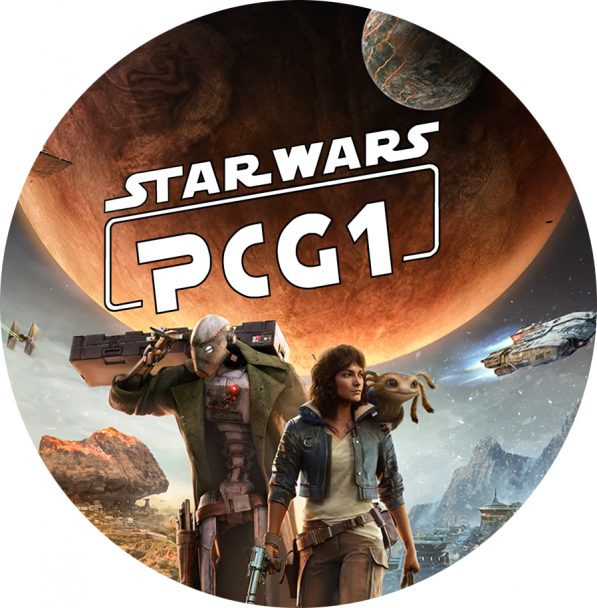GameCentral talks to Ace Combat’s Kazutoki Kono about the return of console gaming’s premier flight sim and a possible sci-fi spin-off…
 Games Inbox: Should websites get rid of review scores?
Games Inbox: Should websites get rid of review scores?
Flight sims are not common on consoles, but neither are they on PCs nowadays. At one point there was a sizeable audience of gamers willing to learn the intricacies of flying a fighter jet or commercial aircraft but nowadays the genre is so niche as to be all but invisible to the general public. The one exception has always been Namco’s Ace Combat series, but even that hasn’t had a numbered sequel in over 10 years. Thankfully though its big comeback game is looking well worth the wait.
That’s not to say that there haven’t been any Ace Combat games at all in the last decade. There was the free-to-play Ace Combat Infinity on PlayStation 3 but more importantly Ace Combat: Assault Horizon back in 2011. Despite featuring real-world aircraft the numbered Ace Combat games are set in their own fictional universe, with invented countries and more advanced technology for things like bases and boss-type enemy aircraft.
The idea at the time was that by setting Assault Horizon in the real world it could attract the Call Of Duty crowd, but while the game was decent it wasn’t a major hit. And so Ace Combat 7 has gone back to its roots and revived the original plotlines, the anime style storytelling, and more sci-fi style boss encounters. All of which is exactly what fans have been dreaming of for years.
At Gamescom we got a brief chance to play a mission from the new game, which showed that while the storytelling has returned to the old style the gameplay is surprisingly innovative. The big problem with any kind of flight sim is it’s very hard to create missions that are anything more than just ‘go here and shoot that’. That’s fine to a degree, when the combat and flying your aircraft is so intrinsically entertaining, but it does wear thin sooner or later.
Ace Combat 7’s answer to this problem is to expand the scope of certain missions so that rather than just taking out targets in a pre-defined order you’re given a general goal and the freedom to approach it however you want. In the demo we played we had to attack a desert runway and other enemy bases, all of which were defended by anti-aircraft guns and had various secondary targets all going about their own business (which once you turn up mostly involves running away).
From your lofty viewpoint the action almost takes on a strategy game aspect, as you figure out which AA guns can be taken out most safely, and which will require a more circuitous route. All of this is mixed in with the series’ usual dogfighting action, making for a pleasingly unpredictable and open-ended experience.
Afterwards we got the chance to talk to producer Kazutoki Kono, who has been involved with the series now for many years and who was flanked by production chief Manabu Shimomoto. Kono-san was able to talk about not just Ace Combat 7 but also the future of the series in terms of VR and a hinted at new space combat simulator…
Formats: Xbox One, PlayStation 4, and PC
Publisher: Bandai Namco Entertainment
Developer: Bandai Namco Studios
Release Date: 18th January 2019 (1st Feb on PC)
GC: So you’ve been working on Ace Combat for a long time now…
KK: 15 years! But the series itself has been going for more than 20 years.
GC: I remember when it was still called Air Combat! Perhaps it was just a job at the beginning but what has kept you invested in the series for so long?
KK: To begin with there’s lots of challenges in terms of the combat flight simulator. Because the concept is basically for people to be able to enjoy fighter jets like a child flying a paper plane.
Also, I really like the fact that you can be the ace pilot yourself. And so it’s not just about the technique you’ll learn but also other characters and radio controllers. So they will feed back to you, so that you can become a better ace pilot.
GC: I love the challenge of learning so many new skills, but that must create a problem for you because while that’s the primary appeal for many existing fans it’s the main reason many newcomers are put off the genre.
KK: Yeah, I agree with you. In the last 15 years I’ve been working on this series I’ve tried to change the environment, I’ve looked at different challenges but I’ve been realising again and again that what’s fun for the players is being good at something that’s not easy.
Also, at the same time, I realised that games should be that way. Because a game is where you can learn something you won’t be able to in the real world.
GC: Exactly! But there are so many balancing acts to get right: realism vs. fun, complexity vs. accessibility, and then even things like the story where you now must have to worry whether it’s also putting off new players. Basically, you have a very difficult job.
KK: [laughs] Yeah, you’re right. But as a director my job is basically to make that work. However, what a game has to do is to increase the accessibility enough so that people can start challenging themselves. And then when you get better and better then there is always more and more to challenge yourself. And that’s something every game has to do. So in that sense I don’t think there are many different answers to choose from.
GC: [laughs] I wonder though what you learnt from the experiment with Assault Horizon? Did it make it clearer what the essence of the franchise is and what it does and doesn’t need?
KK: Assault Horizon was a good game in terms of being challenging but now I feel, retrospectively, maybe it wasn’t something we should have called Ace Combat.
One thing I try to always remind myself of is the fact that the developers of games have always had their fill of a game before the customers. So even when the customers are still wanting to play developers always try to make more changes and that’s how games sometimes fail.
So after having listened to the voices from the fans we felt like we should go back to the numbered titles, after having made Assault Horizon.
GC: A common problem with all flight games is creating variety in missions but I liked the more open-ended tactical element in the demo today.
KK: The story itself is linear but as you say there are different types of missions. One type is more story driven and the other is what we call full-scale battlefields. They have a bigger map and you can decide which order you’re going to attack enemies and when to refill your ammunition.
GC: It wasn’t here today but I also really enjoyed the VR demo you made and was very surprised it caused no nausea at all. That must have involved a lot of research and development.
KK: Yeah, it has taken a lot of research and technology to achieve, and it’s quite tricky to explain everything.
If I make one simple example, a game like Ace Combat is all about focusing on an enemy that is in the distance and that is good for VR. So in terms of technology and visual effects we, of course, thought about them but the more important thing is about the gameplay itself – whether it’s compatible with VR.
So we put those layers together and that’s the result we have now. So we did receive a lot of responses saying that they expected that with a fighter jet that you’d feel sick but they didn’t.
GC: With a lot of games all VR does is increase the immersion – which is still a good thing – but with a flight sim it greatly improves the gameplay because you’re able to track targets simply by moving your head. Do you imagine a future where an entire mainline Ace Combat game will be able to be played in VR?
KK: At the moment I don’t think we have the business case to do VR at that scale. But of course making everything VR is one idea. But if you look at the roots of the Ace Combat series VR is a different direction to the numbered titles.
For example, in the numbered titles we always have characters shot with cinematic camera work. But with VR it becomes more from your point of view. So then the story and the drama will be quite different.
GC: I’ve always enjoyed flight sims in general but my favourite has always been space combat simulators, although I don’t know if they were ever that popular in Japan. I always felt they got the mix between accessibility, fun, and complexity better than most real-world simulators. Have you ever considered doing something like that, either a space game or even Gundam?
KK: We’ve thought about it many times!
GC: Really?
KK: Unfortunately there are many conditions you have to meet in order to proceed with a new project like that, so it has not happened so far.
GC: Imagine a new Xevious that was a space combat sim!
KK: [laughs] Ace Combat is perhaps the world’s number one flight simulation system on consoles. But in terms of expanding the franchise I think it’s something we have to think about more seriously. So that’s something the producer, Mr Shimomoto here is going to think about.
GC: Oh really? Well, do please carry on!
MS: [laughs]
GC: OK, great. Well that sounds very encouraging, it’s been great to meet you.
KK: [in English] Thank you!
MS: [in English] Thank you!
Email gamecentral@ukmetro.co.uk, leave a comment below, and follow us on Twitter

